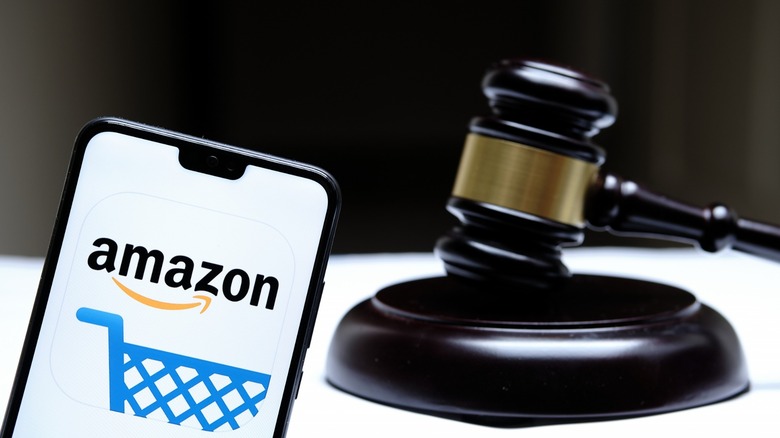How Amazon Uses AI To Protect Against Fake Reviews
With the rise of artificial intelligence, it's becoming harder to discern what is real and fake online. The creation of easily accessible generative language models, like Chat GPT, has made using AI easier than ever before. One concerning trend is the seeming rise in the number of fake user reviews on websites. Fake reviews undermine the very concept of reviews and can make deciding which products or services to get nearly impossible.
Large websites like Amazon have thousands of reviews for different products across the site and help people narrow down the plethora of choices for each product. In 2021, an alleged Amazon fake review scam was revealed via a data breach, which uncovered companies offering free products in exchange for positive reviews.
Luckily, Amazon is taking steps toward restricting the number of fake reviews found on their website by implementing AI technology and taking action against accounts that leave deceitful reviews.
Amazon AI blocked more than 200 million fake reviews
Every review submitted on Amazon goes through an initial AI analysis to determine whether the review posted is genuine or fake. Machine learning models analyze different cross sections of data, including ad spending, behavior, and review history, which it then uses to determine whether or not a review is legitimate. This data enables Amazon to build more robust backend information on user accounts that are suspected of leaving fake reviews.
Large language models are also implemented to analyze data and detect whether a gift card, free product, or reimbursement may have incentivized the positive review. As a result, since 2022, Amazon has blocked more than 200 million fake reviews. While it is good that Amazon is reducing the number of illegitimate reviews on the site, 200 million is quite staggering and shows the breadth of the issue when it comes to fake reviews.
Amazon has sued over fake reviewers
In February of 2022, Amazon filed lawsuits against fake review brokers, who encouraged fraudulent reviews in exchange for money or free products. Indeed, it wasn't the first time Amazon sued fake reviewers, as it took action in 2015 against similar brokers.
In October 2023, Amazon joined other large sites — including Booking.com, Expedia, Glassdoor, Tripadvisor, and Trustpilot — to form the global Coalition for Trusted Reviews. At a Fake Reviews Conference in San Francisco, industry experts discussed different methods that could mitigate the influx of fake reviews on the web. They agreed to share information and create a comprehensive toolkit to combat false reviews together as an industry.
In addition to using AI to detect fake reviews, Amazon also employs AI to create useful review snippets that aggregate consensus among users. Though this feature was met with skepticism, this, combined with technology to combat false reviews, is an example of how AI can be used to help consumers rather than hurt.
The dichotomy of AI being used to generate fake reviews while simultaneously stopping them from occurring shines a light on how the technology may also be used in the future to help combat its undesired effects.


